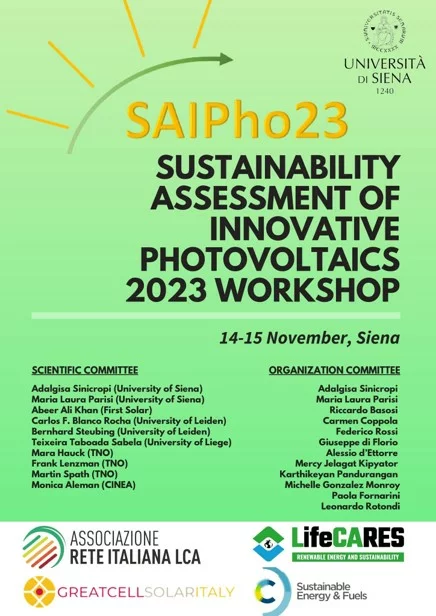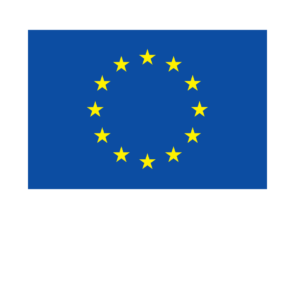The recent SAIPho23 – Sustainability Assessment of Innovative PHOtovoltaics 2023 Workshop, a gathering for experts and stakeholders in the Life Cycle Assessment (LCA) community, witnessed the active participation of PEPPERONI project partners from the University of Liège. The workshop brought together approximately 15 individuals in person and 30 online participants, fostering discussions and collaborations aimed at harmonising LCA methodologies and practices.
The primary focus of SAIPho23 was the analysis of emerging photovoltaic (PV) technologies, with experts sharing insights into parameters, inventory, and results across different impact categories. The workshop aimed to bridge the gap between LCA approaches in various industries, creating a platform for dialogue and collaboration.
Key discussions and challenges
The workshop addressed the need for increased engagement with other LCA groups in Europe, emphasising the importance of establishing a robust network in the field. Recognising the role of industries, participants discussed potential incentives for data sharing to enhance LCA harmonisation. Challenges related to uncertainties, particularly compatibility issues between Life Cycle Impact Assessment (LCIA) methods and databases, were acknowledged, and a proposed solution included conducting a global sensitivity analysis.
The University of Liége co-organised the event, showcasing a commitment to advancing sustainable practices. Attendees, including PhD students and researchers from various institutions such as the University of Padova and Radboud University Nijmegen, as well as private research centres like Eurac, shared their perspectives.
EU projects in focus
The workshop featured insights from various EU projects, including CANVAS, NEXUS, MC 2.0, VALHALLA, and SOLARUP, illustrating the collaborative spirit of the LCA community in addressing environmental concerns. One of the key aspects tackled also in the PEPPERONI project.
PEPPERONI relevant
For the PEPPERONI project, the relevant topics tackled LCA studies concerning perovskite/Si tandem cells. These studies, presented during the workshop, delved into the environmental impact of perovskite/Si tandem cells across multiple categories. Details on functional units, system boundaries, impact assessment methods, software used, and final results were thoroughly discussed, providing valuable insights for advancing research in this technology.
Towards a white paper
One notable announcement was the forthcoming publication of a white paper summarising all the outcomes and discussions from the SAIPho23 workshop. This comprehensive document will serve as a valuable resource for the broader LCA community, consolidating the collective wisdom shared during the event.
The most engaging aspect of the workshop was the open discussion, where participants freely exchanged advice and ideas, fostering an environment of collaboration and knowledge-sharing. These interactions are crucial in propelling the harmonisation of LCA studies on PV technologies forward.
As a participant in the workshop, our involvement did not include a formal presentation or poster creation. Instead, we actively engaged in the open discussions, enriching our understanding of current LCA practices and aligning our research with the latest guidelines and suggestions. – says Roberto Magnifico, PhD student involved in the PEPERONI project.

Roberto Magnifico, University of Liège
The SAIPho23 workshop stands as a testament to the commitment of the LCA community towards a sustainable future, and the PEPPERONI project looks forward to contributing further to this ongoing dialogue.



